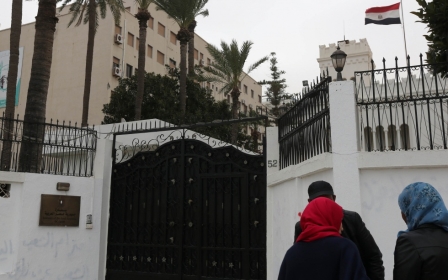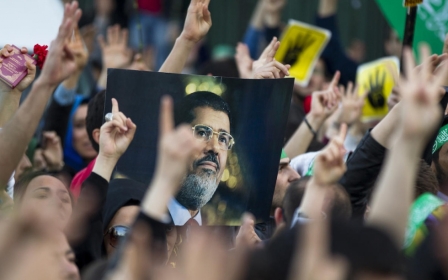Cairo metro bomb blast injures 16

A bomb blast in a Cairo metro carriage injured sixteen people on Thursday morning, said the Egyptian ministry of health in a statement.
The incident was caused by an explosive device placed in one of the underground carriages, said the ministry.
The explosion did not cause any deaths, while the injuries were caused by the passengers rushing out of the carriages and not due to the explosion itself, said Ahmed Al-Ansary, head of the ambulances authority.
The injuries were all slight, including light bruises and a couple of bone fractures. The casualties were sent to three different hospitals for immediate medical attention, Ansary told Egyptian state-owned news website Ahram Gate.
The explosion took place in Hilmiyet al-Zaytoun, an eastern suburb of Cairo.
No group has yet claimed responsibility for the attack.
A series of bomb explosions have taken place across Cairo as Egypt faces rising militant violence since then army chief Abdel Fattah al-Sisi ousted President Mohamed Morsi last year.
The most recent of these incidents took place only a week ago, when a bomb blast just 100 metres from Cairo’s presidential palace wounded a female passer-by, a few hours after a train bomb killed at least five people, news sites reported.
Dozens of policemen and soldiers have been killed by militant attacks, since the army-led ouster of former president Mohamed Morsi last year and the government’s violent crackdown on his supporters.
The deadliest attacks have taken place in the Sinai Peninsula, particularly in its northern part that borders Gaza and Israel, where 31 soldiers were killed by militants just last month.
Attacks targeting police officers and soldiers have also spread across the country, including the capital where the Minister of Interior Mohamed Ibrahim, who runs Egypt’s police force, was targeting in an assassination attempt last year.
It was after deadly bombings that targeted the police headquarters in the Nile Delta city of Mansoura in December 2013 that the government declared the Muslim Brotherhood, the Islamist movement to which Morsi belongs, a terrorist organisation. The Muslim Brotherhood did not claim responsibility for the attack.
Several militant groups have grown in prominence over the last year claiming responsibility for most of the attacks on security personnel, including Ansar Beit al-Maqdis – believed to be Sinai-based – and Ajnad Misr.
Ajnad Misr claimed responsibility for a bomb blast outside Cairo University on 22 October, which wounded nine people, including a police general, saying it was in response to the repression of student protesters.
The militant groups have said these are revenge attacks for the deaths and arrests of hundreds of pro-Morsi protesters in clashes with the police since his overthrow in July 2013.
Prior to Morsi’s ouster, Ansar Beit al-Maqdis mainly targeted Israel in its attacks with a noticeable shift targeting mainly Egyptian security personnel after this date.
At least 16,000 people, mostly Morsi supporters, have been arrested since last July, according to the Associated Press citing official figures. Activists have placed the figure much higher, saying that at least 41,000 people have were arrested between July 2013 and May 2014.
The government blames the Muslim Brotherhood for most of the violence, while the group says it is committed to peaceful protest and denies involvement in any of the attacks.
New MEE newsletter: Jerusalem Dispatch
Sign up to get the latest insights and analysis on Israel-Palestine, alongside Turkey Unpacked and other MEE newsletters
Middle East Eye delivers independent and unrivalled coverage and analysis of the Middle East, North Africa and beyond. To learn more about republishing this content and the associated fees, please fill out this form. More about MEE can be found here.




